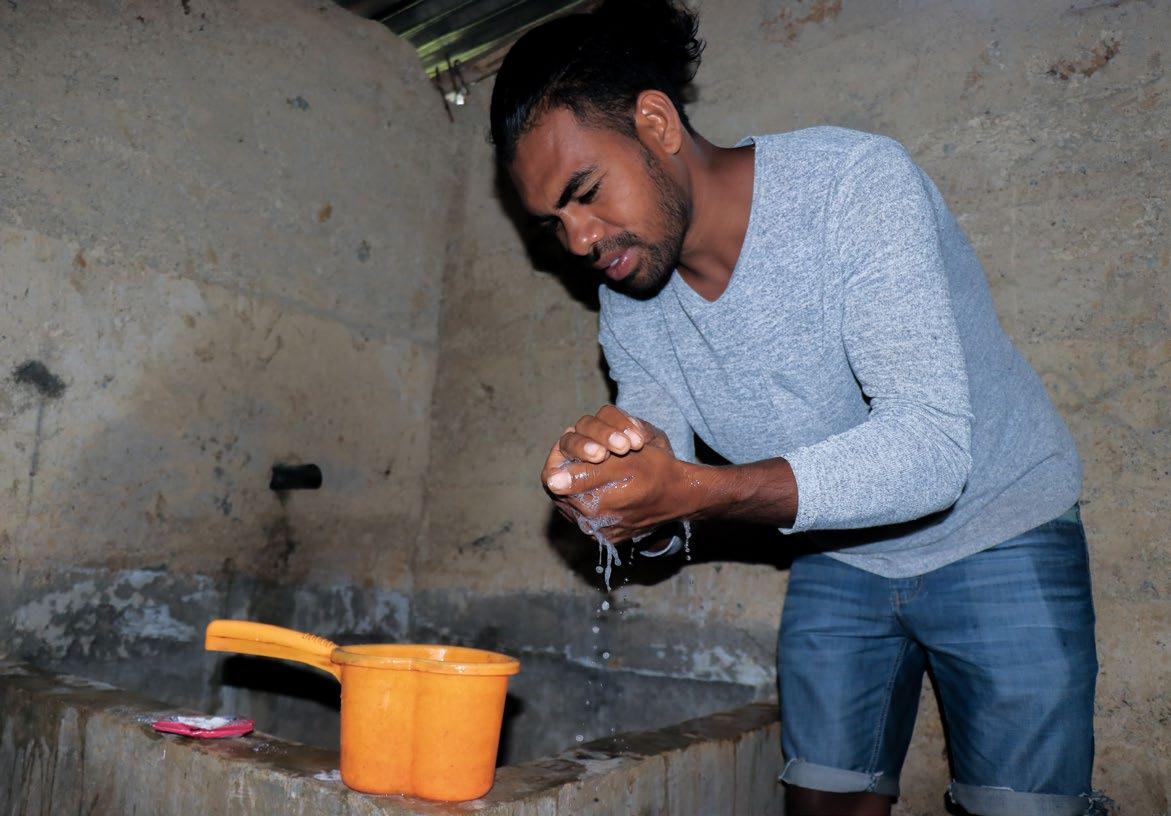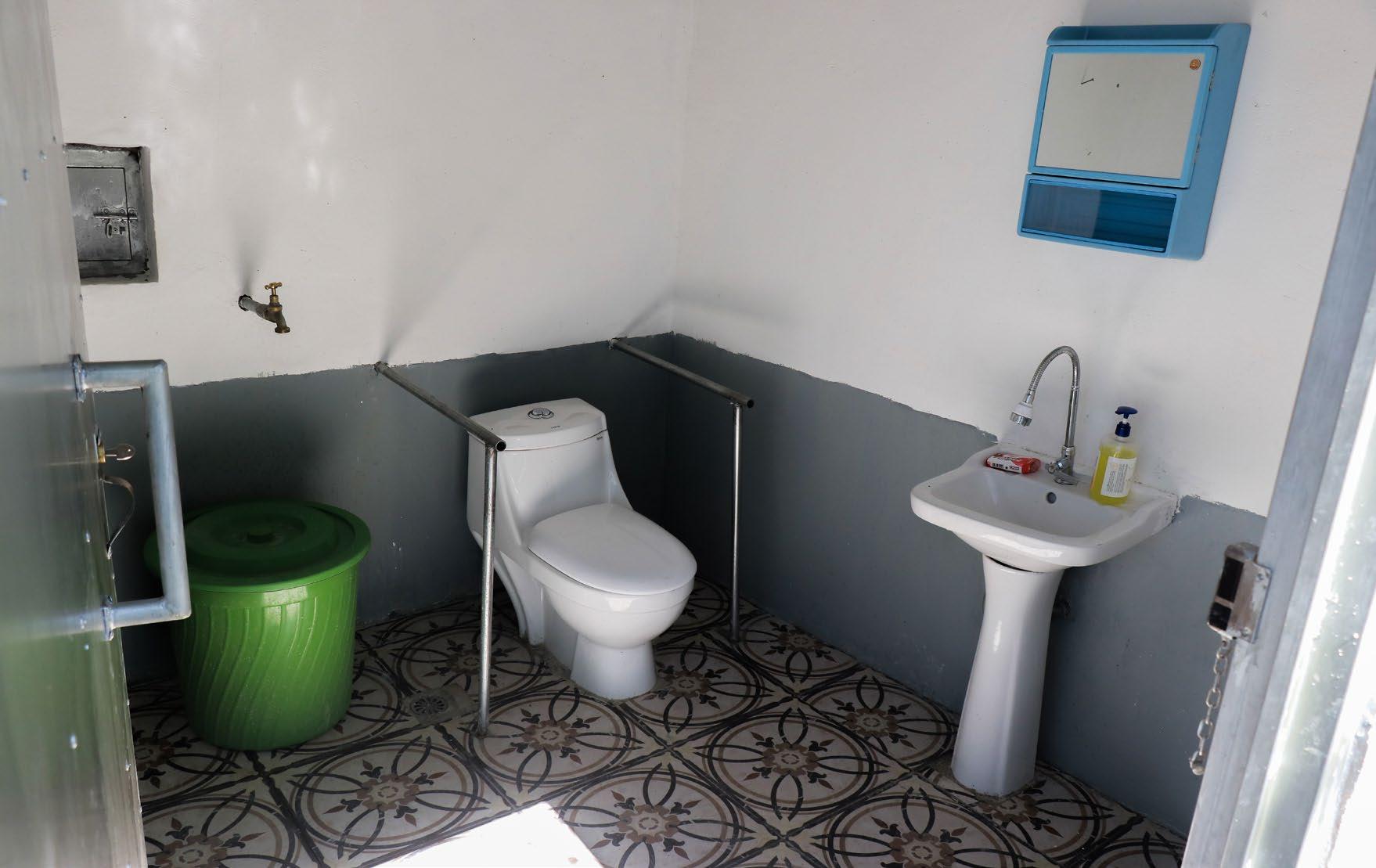
2 minute read
Timor-Leste
The WASH sector in Timor-Leste has undergone significant transformation in the last year. The Directorate General for Water and Sanitation (DGAS) has now been dissolved and responsibilities transferred to two new institutions: a national water and sanitation authority (ANAS) and public water utility (Bee Timor-Leste, or BTL).
We have worked hard in the last year to cement strong relationships with both ANAS and BTL at the national level, and have advocated for the importance of WASH planning and policy in the transformation process.
Advertisement
WaterAid Timor-Leste has continued to focus on collaboration with local implementing partners to deliver WASH services, strengthen national and municipal government systems, influence WASH sector resourcing, and champion WASH as a human right.
Notable achievements this year included: • Working in partnership with local disability rights organisation RHTO, we have advocated at both the national and municipal level for the development of a People with a
Disability Action Plan, which will be ratified by the Ministry of Public Works in 2022. This stipulates national guidelines related to inclusive and accessible public infrastructure, and builds on work done in partnership with
CBM this year to develop the “Transforming disability rights through WASH: A
Programming Framework”. • We have continued working with local women’s organisations GFFTL and FAS to facilitate gender dialogue modules with local water user groups (GMFs) that challenge gendered divisions of labour in household
WASH responsibilities, and promote women’s leadership in the WASH sector. • WaterAid Timor-Leste continued to sit on municipal and national COVID-19 taskforces this year to provide technical sanitation and hygiene expertise. This included work with the Health Department to provide COVID-19 health promotion materials and menstrual hygiene management training to teachers in
Manufahi and Liquica, and the distribution of face masks, soap and hand sanitiser. • We supported municipal authorities to conduct a Life Cycle Cost Analysis to determine the costs of providing and sustaining WASH services in all healthcare facilities across Manufahi. This information may now be used by HCFs and municipal
A man washes his hands at new WASH facilities in Turiscai, Manufahi
government alike to advocate for evidencebased, specific WASH budget amounts to be able to install and maintain vital WASH services with the hope to improve health outcomes in the future.
•WaterAid continued to collaborate closely with national WASH civil society network PN-
BESITL, supporting them to make a formal budget submission advocating for greater allocation to WASH service provision and maintenance. As a result of this submission the national WASH budget allocation was increased from 0.7% to 1.8%.
•WaterAid has been working to strengthen the existing national WASH monitoring system in Timor-Leste so that strong, reliable and timely WASH data can be collected and shared at national, municipal, and community levels to inform water resource management decision-making, and increase community climate resilience.

A new inclusive WASH facility at a healthcare facility in Manufahi
Expenditure: $2,283,629 Locations of Projects:
Dili, Liquica, Manufahi
Funders:
•Water for Women Fund (Australian
Government) • ANCP (Australian Government) • Australian Water Partnership (Australian
Government) • Swedish International Development
Cooperation Agency • US Department of Agriculture (McGovern-Dole
Program) • Who Gives a Crap • Corporate, foundation, and supporter contributions









